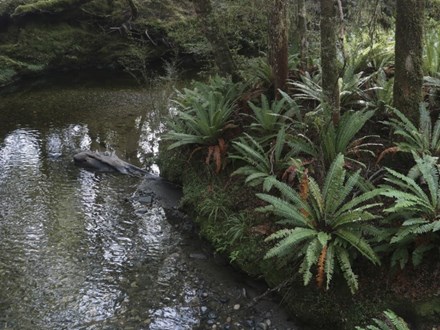First published in Newsroom
The fallout from something as foreseeable as a pandemic tells us we weren’t spending our money wisely enough before. So let's look at the choices ahead. Let's consider: if your highly flammable house was severely damaged by fire, would you rush to rebuild it with the same materials?
Questions like this have been a big part of the Sustainable Business Network’s work for more than 18 years. We've tried to convince businesses and governments to reduce unsustainable investments, ones that undermine our capacity to endure as a species. We've supported them investing in things that secure our future. Because situations like the one we are in are how unsustainability plays out. Sustainability, at its core, is not about whether things are nice or green. It’s about whether or not things can continue on the path they are on.
Of course, we are lucky we can invest at all. That’s thanks to a certain amount of fiscal caution in the way New Zealand has handled its money since the Global Financial Crisis in 2007-8. But we still missed the chance then to repair key systems that were fundamentally broken.
Like the rest of the industrialised world we still largely run on two intertwined forms of debt – the financial and the ecological. Too often we spend money we don’t have on things we don’t need, destroying our planet, and our capability to endure, in the process. If a pandemic didn’t turn that into a train wreck, something else would.
We are at a junction now. As we emerge from the pandemic into the world, we get to choose. We can head off on the same track. Or we can take this opportunity to right the wrongs of growing inequality, with increasing pressure on climate, waste and our precious water.
We get the society we pay for. New Zealand is our extended bubble now. With global markets and travel constraints it looks like even the richest of us will be spending more of our time here. So let’s clean our house properly before we reopen our borders.
Now we have this opportunity to reskill and re-employ those made redundant, and those keen to work. We need to invest in activities that reduce carbon, pollution and waste, and directly improve the wellbeing of every New Zealander, throughout the multi-generational long term, not just the next few months or years. This means ensuring our actions consistently improve the four key measures in Treasury’s Living Standards Framework.
We have the chance to favour and reward low carbon businesses that produce goods and services for us while radically reducing waste and pollution. We have the chance to build-back this country’s living infrastructure, by creating jobs in conservation and ecological regeneration. We have a lot of good work to do!
Our primary industries are changing. We have the opportunity to pivot to regenerative, organic food production. Our relationship with our soil and food is central to the wellbeing of our people, land, water and economy. We can demand a wider diversity of locally grown food from a sector that could be focused on regenerating soils, revitalising our fresh water and produce that is really good for our health. The world is crying out for sustainable sources of food, especially protein. We can become an exporter of goods and expertise that meet this need.
We must also make our SMEs, the backbone of the New Zealand economy, more resilient to future shocks. We need to favour them in all our spending now. Before Covid-19, SMEs accounted for 97 percent of all New Zealand businesses. They employed more than 630,000 people, or 29 percent of all New Zealand employees. They generated 28 percent of New Zealand gross domestic product (GDP), 35 percent if the self-employed are included. SMEs want to engage in climate action, but they need the right tools to act, and then we need to buy from these businesses too. We need to support them so they can continue to generate long term local employment, boost regional communities and secure our low carbon future.
The Sustainable Business Network provides tools and training for businesses in all these areas. We’ve just launched our Climate 20/25 programme for SMEs to more easily engage on these issues. But there’s also a lot businesses can do in their own investments and preferential purchases, beginning right now.
We have more than 600 organisations in our national network. Many of them are in sectors hardest hit by the lockdown. We understand the temptation to default to business as usual, or the need to go into a short term survival mode. In response, we have produced up-to-date guidance on the immediate and direct benefits in investing now in energy efficiency, waste minimisation and sustainable transport. There’s big money to be made and saved in sustainability, in resource efficiency and in resilience for all of us. Leaner times require us to focus on this more, not less.
That’s how we will get our businesses, and our whole economy, squarely back on their feet and keep them there.
We have consolidated New Zealand’s Unique Selling Point as a global safe haven. We’ve been acknowledged as one of the world leaders on dealing with this threat. Let’s double down on that, and make ourselves acknowledged leaders in the world that is now unfolding.

